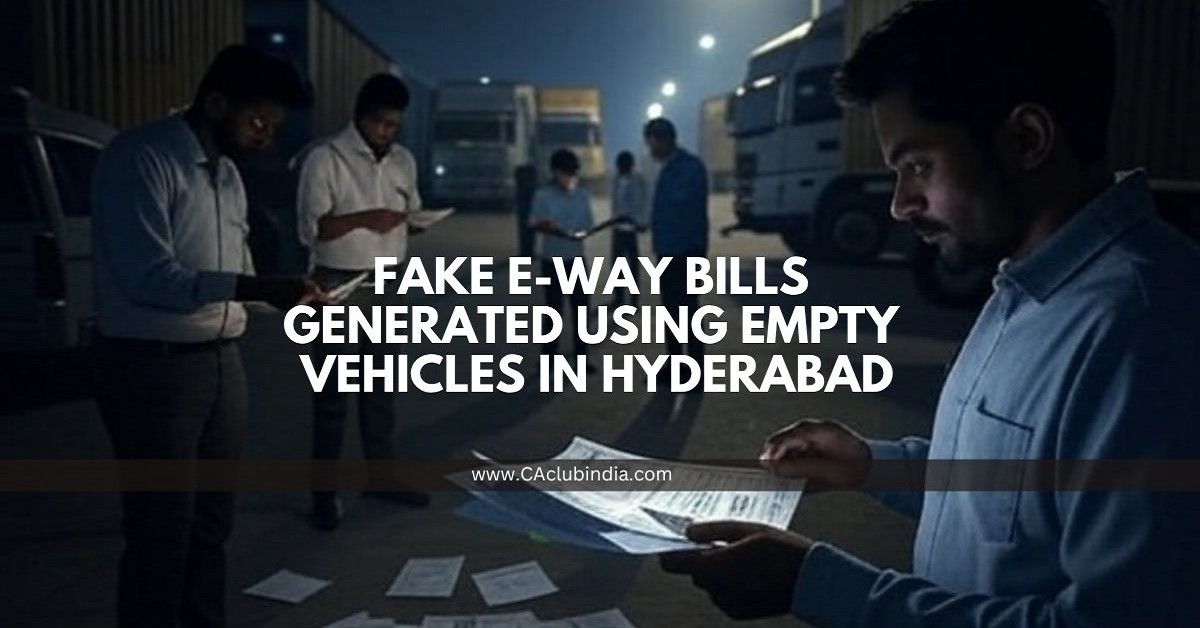The Commercial Taxes Department in Hyderabad has unearthed two highly deceptive cases involving the use of empty vehicles to generate fake e-way bills, a key requirement for transporting taxable goods under the GST law.
In one instance, the department discovered that a stationary car, which had not moved since June 2025, was being used repeatedly to generate fake e-way bills. The car, once flagged, was impounded and towed to a local police station. Surprisingly, fraudsters continued to use the same vehicle registration number to issue e-way bills even after it had been seized.

Majid Hussain, a senior official from the Mehdipatnam 1 circle, revealed that multiple taxpayers had issued e-way bills using the immobilized vehicle's number, despite no goods being transported. "The situation became more suspicious when the registered vehicle owner denied any knowledge of its use," officials said, suggesting criminal misuse.
This activity is a clear violation of the Central Goods and Services Tax (CGST) Act, 2017 and is believed to involve criminal intent under Sections 318 and 336 of the Bharatiya Nyaya Sanhita (BNS). Authorities have since filed a complaint and are preparing to lodge an FIR against the suspected individuals involved.
Empty Trucks, Full of Deception
In another case, a city-based company attempted to transport fake copper consignments using completely empty vehicles. The fraud came to light when the company owner instructed truck drivers to park the vehicle, click staged photos, and appear on CCTV cameras-an unusual attempt at caution that raised red flags.
Commercial tax officials intercepted the empty vehicles at Kamkole tollgate, on the route between Nizamabad and Maharashtra. "While the company went to great lengths to disguise the scam-occasionally hiding the vehicles-officers found that no copper was actually being moved," said sources close to the investigation.
These incidents highlight the increasing sophistication of GST evasion techniques and the urgent need for tighter enforcement and real-time verification mechanisms for goods movement and vehicle authenticity.
The department is expected to take further legal action, and both cases may soon result in full-fledged investigations involving other enforcement agencies.







 CAclubindia
CAclubindia
